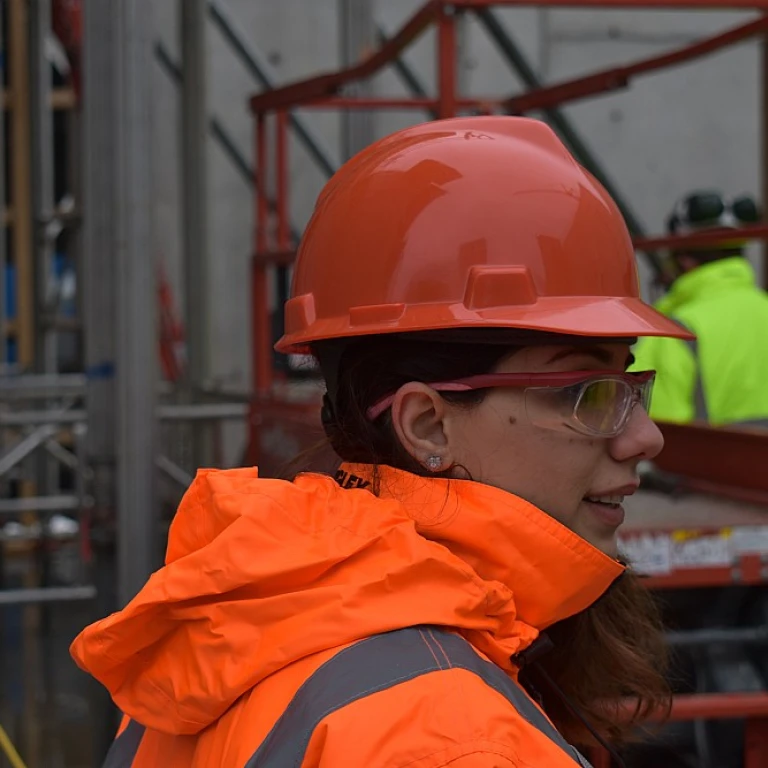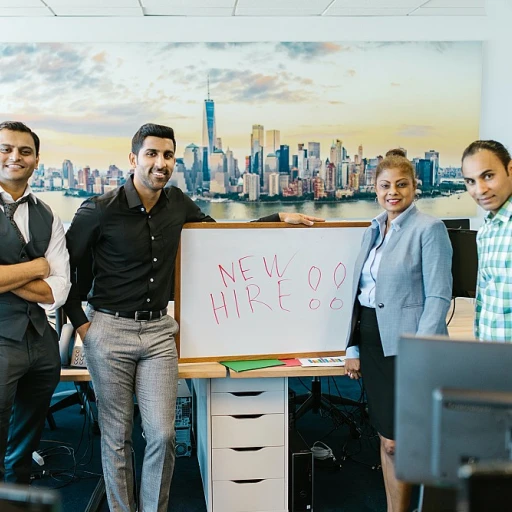
Defining the Talent Acquisition Specialist
The Core Responsibilities of a Talent Acquisition Specialist
Every company knows that finding the right talent is crucial for its business success. This is where a talent acquisition specialist steps in, a key player in the recruitment process tasked with building a bridge between potential candidates and hiring managers. Essentially, their role is all about identifying, attracting, and retaining top talent for a company to ensure long-term success.
The talent acquisition specialist manages the hiring process from start to finish. They carefully craft job postings to attract the right people, leveraging social media for outreach and maintaining an active pipeline of industry trends. It's not just about finding the right person; it's about creating an exceptional candidate experience that leaves a lasting impression, even on those who may not get the job.
In addition to their efforts in acquisition and hiring, these specialists work closely with human resources and business administration teams to ensure that the recruitment process aligns with the organizational goals. They utilize various tools such as applicant tracking systems to enhance the efficacy of the recruitment operation.
To learn more about effective management and strategies in handling talents, be sure to explore content resources from professionals who master the art of engagement with high potential employees.
Key Skills for Talent Acquisition Specialists
Critical Abilities for Talent Acquisition Specialists
In the competitive landscape of today’s job market, talent acquisition specialists must possess a unique set of skills that enable them to excel in the recruitment arena. This vital role bridges the gap between potential candidates and a company's resource needs, requiring a multifaceted approach centered around effective communication, analytical precision, and strategic thinking.
One of the foundational skills is strategic sourcing, where specialists employ creative methods to find top talent. This often involves leveraging social media platforms, networking events, and job fairs to identify potential candidates. Furthermore, mastering the use of applicant tracking systems (ATS) is crucial, ensuring that the candidate experience is smooth and comprehensive from start to finish.
Another key skill is relationship management. Talent acquisition specialists need to build genuine, long-term relationships with hiring managers, understanding their specific needs and aligning them with the industry’s best candidates. This involves strong interpersonal skills, as well as the ability to communicate clearly and concisely. Additionally, specialists must oversee the entire hiring process, from detailing job postings to conducting interviews and guiding prospective employees through the recruitment process.
Analytical skills also play a pivotal role. By analyzing market trends and reviewing competitors’ recruitment strategies, specialists can make informed decisions that enhance the company's competitive edge. Understanding these industry trends helps businesses optimize their recruitment strategies and improve their overall human resources management.
Moreover, specialists need a keen eye for detail, especially when conducting candidate evaluations. Employing tools like the 9-box grid can aid in assessing employee potential and performance, ensuring the right fit for both the candidate and the company.
Identifying High Potential Employees
Spotting Future Leaders in the Recruitment Process
Identifying high potential employees is a crucial aspect of the talent acquisition process. These individuals are not just skilled; they possess the ability to grow and take on leadership roles within the company. But how do talent acquisition specialists pinpoint these future leaders during the hiring process?
Firstly, understanding what makes a candidate high potential is essential. It goes beyond technical skills and experience. Specialists look for traits such as adaptability, problem-solving abilities, and a drive for continuous learning. These qualities often indicate a candidate's capacity for long-term growth and success within the organization.
Tools and Techniques for Identifying Top Talent
Talent acquisition specialists employ various tools and techniques to identify potential candidates. One effective method is the use of the 9-box grid, which helps in assessing an employee's current performance and potential for future roles. This tool is invaluable in the recruitment process, allowing specialists to categorize candidates effectively.
Additionally, applicant tracking systems (ATS) and social media platforms play a significant role in the recruitment process. These tools help specialists find and evaluate candidates efficiently, ensuring a streamlined hiring process. By leveraging these resources, specialists can focus on candidates who not only fit the current job requirements but also have the potential to excel in future positions.
Collaboration with Hiring Managers
Collaboration between talent acquisition specialists and hiring managers is vital in identifying high potential employees. Hiring managers provide insights into the specific needs of their departments, while specialists bring expertise in evaluating candidates. This partnership ensures that the recruitment process aligns with the company's long-term goals and business administration strategies.
For more insights on empowering your executive team with high potential employees, you can explore this resource.
Challenges in Talent Acquisition
Navigating the Challenges in Talent Acquisition
The field of talent acquisition is not without its hurdles. Specialists often face challenges that can impede the recruitment process and affect a company’s ability to secure top talent. Understanding these obstacles and developing strategies to overcome them is crucial for acquisition specialists aiming to enhance their effectiveness.
One significant challenge is the dynamic nature of the job market. As industry trends evolve, the demand for skills can shift rapidly, leaving hiring managers scrambling to find candidates with the right experience. This requires talent acquisition specialists to stay attuned to market changes and adjust their strategies accordingly. Continuous learning and professional development are essential to keeping pace with the ever-changing landscape.
Additionally, sourcing potential candidates can be a daunting task, especially for roles requiring specialized skills. Specialists need to leverage diverse recruitment channels, including job postings, social media, and applicant tracking systems, to widen their reach and tap into untapped pools of talent. Crafting compelling employer branding and messaging can also play a pivotal role in attracting high-quality applicants.
Managing the candidate experience is another area that can present challenges. A lengthy hiring process or poor communication can deter top candidates from accepting a job offer. To avoid this, talent acquisition specialists must ensure a seamless and engaging experience, emphasizing transparency and prompt feedback throughout the recruitment process.
Finally, balancing short-term hiring needs with long-term business objectives can complicate decision-making within human resources. Acquisition specialists must work closely with business administration and company management to harmonize immediate job requirements with strategic goals, ensuring that hiring decisions align with the company’s vision for growth and development.
By proactively addressing these challenges, talent acquisition specialists can optimize their hiring processes and significantly contribute to organizational success.
The Impact of Talent Acquisition on Organizational Success
The Ripple Effect of Effective Talent Acquisition
In the world of business administration, the role of talent acquisition specialists goes beyond simply filling vacant positions. Their impact extends to fostering long-term organizational success, elevating both company culture and bottom-line results. It's important to understand just how profound the effect a well-structured recruitment process can have on a company.
Talent acquisition specialists often collaborate closely with hiring managers, ensuring the identification and recruitment of top talent whose skills align with organizational goals. A well-executed hiring process contributes to a more qualified workforce, enhancing team synergy and productivity.
A streamlined recruitment process can improve candidate experience, reducing the likelihood of losing potential candidates due to prolonged or inefficient processes. Enhanced applicant tracking systems and smarter job postings help specialists find and attract high-potential employees faster, ensuring that talent acquisition meets the immediate and future needs of the business.
Moreover, recruitment processes that are refined by updated industry trends and social media strategies enable organizations to capture the interest of the most qualified candidates in the market. Human resources departments that integrate cutting-edge technology and forward-thinking approaches to talent acquisition help businesses stay competitive and capable of achieving their strategic objectives.
Future Trends in Talent Acquisition
Future Predictions in Talent Acquisition
The landscape of talent acquisition is always evolving, influenced by advancements in technology, shifts in workforce demographics, and economic changes. As we look to the future, several trends emerge that are set to redefine the recruitment process and the role of talent acquisition specialists.- Increased Use of AI and Automation: Artificial intelligence and automation are taking a front seat in the recruitment process. They assist in efficiently screening resumes, scheduling interviews, and improving the overall candidate experience. By automating repetitive tasks, talent acquisition specialists can focus on strategic elements of recruiting, such as identifying high potential employees with strong skills.
- Remote Work and Global Talent Pool: With the shift towards remote work, the talent market has become a global playground. Companies are no longer limited by geography; they can find the best candidates worldwide. This global approach not only widens the potential candidate pool but also brings diverse perspectives and reinforces business strategies.
- Focus on Diversity and Inclusion: As companies strive to build more inclusive workplaces, talent acquisition specialists are tasked with finding strategies to recruit diverse talent. Implementing unbiased recruitment processes and enhancing cultural fit assessments become crucial in fulfilling organizational goals.
- Enhanced Employer Branding: In an era where social media and online reviews impact job seekers' decisions, companies must focus on building strong employer brands. Engaging content, employee testimonials, and highlighting company culture help attract top talent and enhance the candidate experience.
- Integration of Advanced Analytics: By leveraging data analytics, companies are optimizing their recruitment strategies. Analytics provide insights into candidate engagement, track application progress via applicant tracking systems, and assess the effectiveness of hiring managers in the recruitment process.













